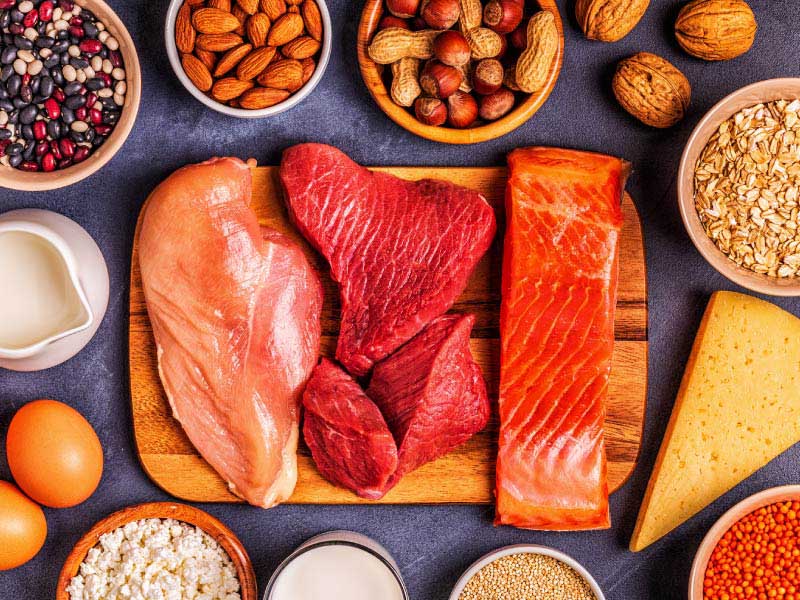Eating a wide variety of proteins may lower risk for high blood pressure
By American Heart Association News

A balanced diet that includes protein from a variety of sources may lower the risk for developing high blood pressure, new research from China finds.
The study, published Thursday in the American Heart Association journal Hypertension, found that Chinese adults whose diets included the greatest variety of protein sources had a substantially lower risk of developing high blood pressure than those who consumed the least variety.
Nearly half of U.S. adults have high blood pressure, also called hypertension. It is a major risk factor for heart disease, stroke and other chronic diseases. Prior studies have shown a strong link between poor diet quality and a higher risk of cardiovascular disease, but studies analyzing the link between dietary protein and blood pressure levels have been inconsistent. The AHA recommends eating no more than about 5.5 ounces of protein daily, about one to two servings, from healthy sources such as plants, seafood, low-fat or fat-free dairy products and some lean meats and poultry.
In the study, researchers analyzed data for 12,117 adults who took part in at least two of seven rounds of the China Health and Nutrition Survey between 1997 and 2015, with an average follow-up time of six years. Slightly less than half of the participants – who were an average 41 years old – were men. The surveys measured three consecutive days of eating during each round and assigned a score based on the number of different sources of protein participants consumed.
Protein sources included whole grains, refined grains, processed red meat, unprocessed red meat, poultry, fish, eggs and legumes. "Along with fat and carbohydrates, protein is one of the three basic macronutrients," Qin said.
Participants who reported taking blood pressure-lowering medication or being diagnosed with high blood pressure since their last survey were considered to have new-onset hypertension.
When total protein intake was calculated, those who ate the least and the most total protein were at greatest risk for developing high blood pressure. When looking at protein variety, those who scored highest for eating a variety were 66% less likely to end up with hypertension than those who scored lowest.
"The heart health message is that consuming a balanced diet with proteins from various different sources, rather than focusing on a single source of dietary protein, may help to prevent the development of high blood pressure," study author Dr. Xianhui Qin of Nanfang Hospital, Southern Medical University in Guangzhou, China, said in a news release.
If you have questions or comments about this story, please email [email protected].





